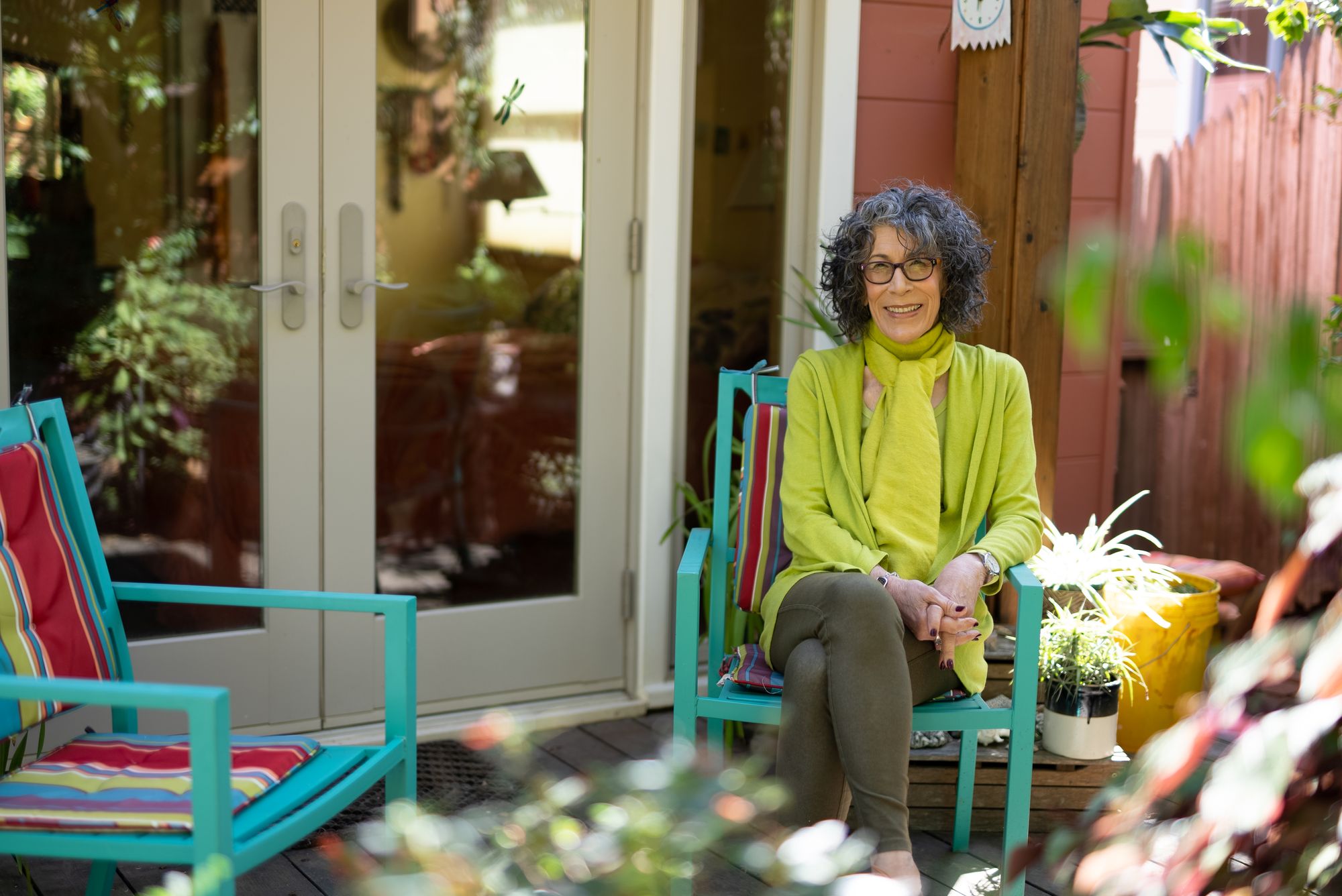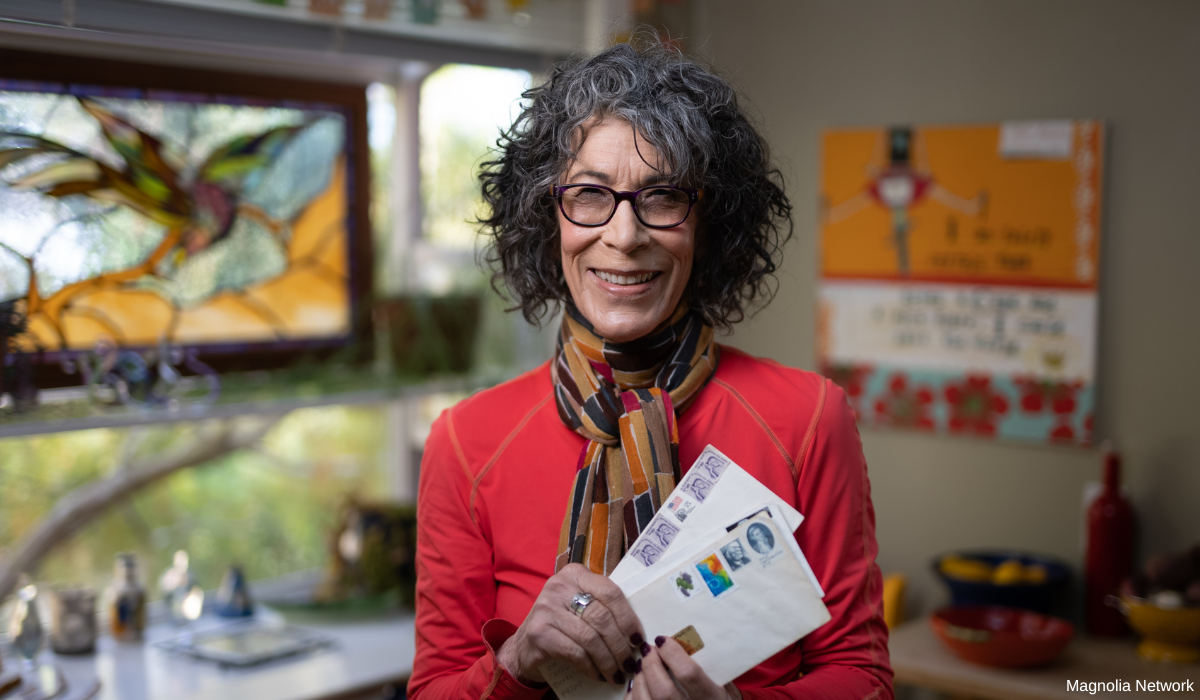It’s Teacher Appreciation Week. This Educator Started a Student Project Over 40 Years Ago—and It’s Still Changing Lives Today
For ages, letter writing has been a means of connection.
For Nancy Rubin, a retired teacher, letter writing was an anchor. It was also a source of revelation for the young minds she taught.
"I was reading a quote recently from one of my students who was only 14," Rubin tells The Sunday Paper over the phone. "And she said 'paper is the perfect listener.'"
In 1977, then a new teacher at Berkeley High School in Berkeley, California, Rubin started a project focused on letter writing called 'The Time Capsule Project.' Every semester, she assigned her students, most of whom were 15- or 16 years old, to handwrite a letter to their future selves. They were to mark the envelope with an address that would (hopefully) work in the future and include postage.
Then the kicker: The students were to tell Rubin when they wanted her to mail their letters. It didn’t matter if they requested six months or 20 years in the future. Rubin promised to send every one.
And she did. From 1977 to 2002, Rubin conducted The Time Capsule project for every class she held, culminating in 10,000 letters. After she stopped teaching, she continued to send those letters—eventually mailing the last one only a few years ago.
Over the years, Rubin juggled boxes of letters to be mailed. In the early days, she scrappily organized the letters in shoe boxes. As her inventory swelled, she graduated to pizza boxes.

In Hi, I'm Nancy Rubin, a documentary that tells of Rubin and her project, former Berkeley High students recall how much they loved what the project foreshadowed. "It was like someone told me I was going to get a chance to time travel," says former student Aya in the documentary. "It was magical."
But as happy and exciting as the project was, it shed light on the hard stuff. For one, many students asked Rubin what would happen if she died before mailing their letters. The project also revealed how some students wouldn't live to see their words. "One student I had died by suicide, another in an accident. And one student has been missing since 1995," she tells us.
In these cases, Rubin reached out to the families explaining the project and asking if they'd like the personal letters of their loved ones. "They all said 'yes,'" she says, adding that one father of a woman who'd been killed in a car accident was deeply moved.
This truthfulness runs parallel with the energy Rubin has always put out. A legacy even larger than The Time Capsule Project is Rubin's class in which she assigned it called Social Living. A far cry from the strict structure of math or science, Social Living, as its name suggests, was about life and its complexities. It was a place for kids to be real and talk openly. Topics ranged from sexual health to gender dynamics to making healthy decisions. "I did not give any tests or quizzes," she says. "Rather, I wanted to know from them how to say no in a situation. Or how do you talk about consciousness?"
"The beauty of the class was that everybody was in there together and dealing with these issues that often pushed buttons," she adds. "The students were dealing with so many different things."
And like Berkeley, the class was diverse in race, socioeconomics, and identity. "Because of the community's makeup, that was reflected in the class. In Berkeley, you had kids living in the hills and the flats, coming from such different family situations."
Providing safety and acceptance was paramount for Rubin. Kids need an outlet to talk about hard stuff. "Even those with the most caring parents, teens want to hear about this from someone else. And ideally, if it's not a relative or a neighbor, they get it at school," she says.
"You weren't a punk for having emotions," says former student Roberto in the documentary about the class.
When asked about the gravity teachers face today, from underfunding to lack of safety and appreciation, Rubin sighs, "I don't even know where to begin," she says before listing issues such as gun violence and social media pressure. "It makes me very sad that so many people I know have said they'd like to go into teaching but won't because of the low pay or what it's like in the schools."
"School should just be this amazing place of learning about oneself and the beauty of the world and along with the academics," she adds.
Many who were in Rubin's class would say the teacher gave them just that. She also opened a world of knowing more about themselves. In the documentary, it shows several students, all now adults, opening their letters mailed to them by Rubin. There are smiles and tears.
"I hope you're doing better than I am now," reads former student Faith in her letter by her 15-year-old self.
"It's a hard life and a hard biz. You are not a failure." reads Roberto.
As the letters and readings go on, one thing becomes so true: The Time Capsule Project provided a beacon. A ray of light for so many. Back then, it gave spinning teenagers a way to put their hopes and realities onto paper. In the following years, it gave future selves a deeper look at how we're all beautiful works in progress.
Now, more than four decades after the project started and a few years after the last letter was sent, Rubin reflects on everything that experience gave her.
"It was just incredible," she says of her decades teaching at Berkeley. "There was never a dull day […] It was challenging and fulfilling. It was emotionally draining trying to deal with some of those issues sometimes. And The Time Capsule Project was just really fun."
Nancy Rubin is a photographer and a former teacher. You can learn more about her work and career at nancyjrubin.com and about the Time Capsule Project here. You can also learn more about the documentary Hi, I’m Nancy Rubin on the Magnolia Network and you can watch it currently streaming on Discovery+, and on Max starting on May 23.
Question from the Editor: Is there a teacher who left an indelible mark on your life? We'd love to know!




